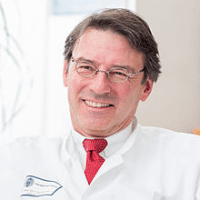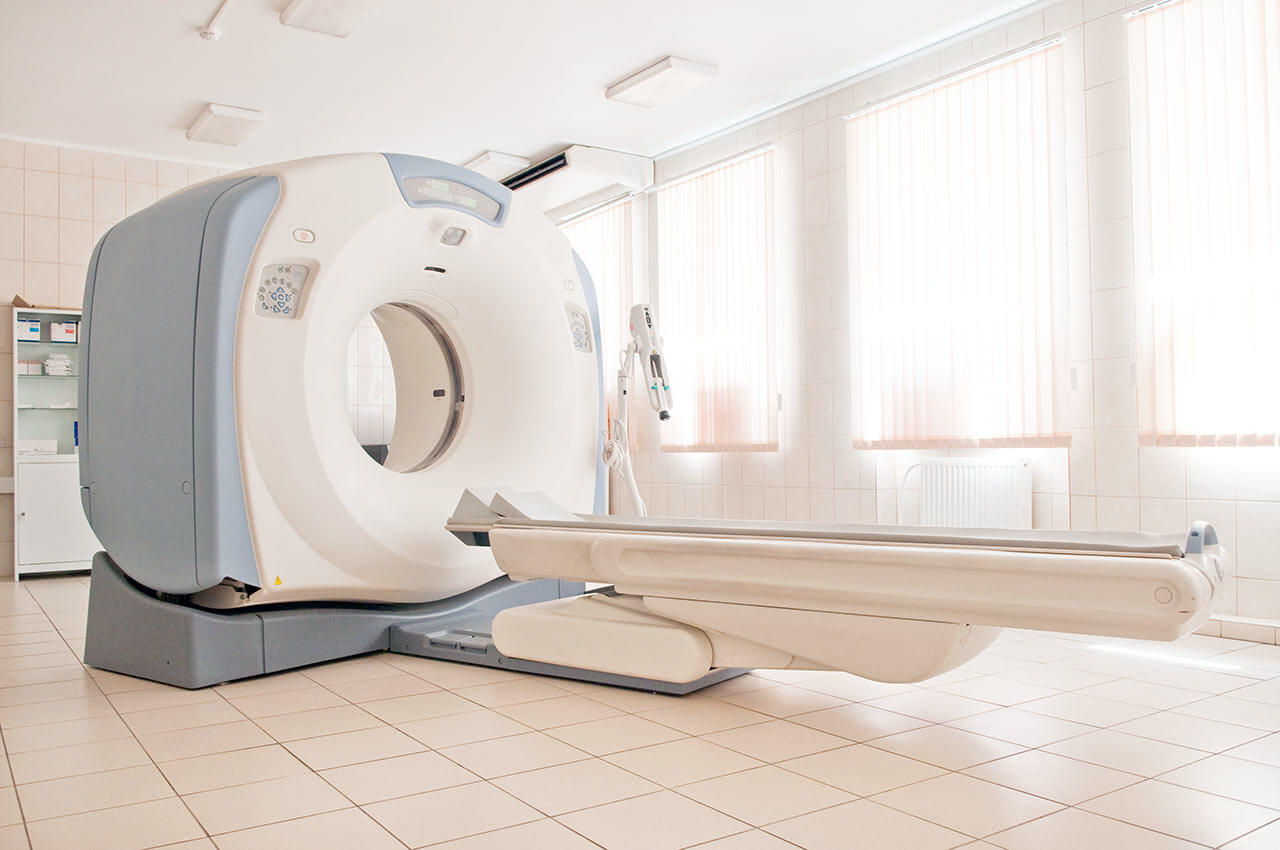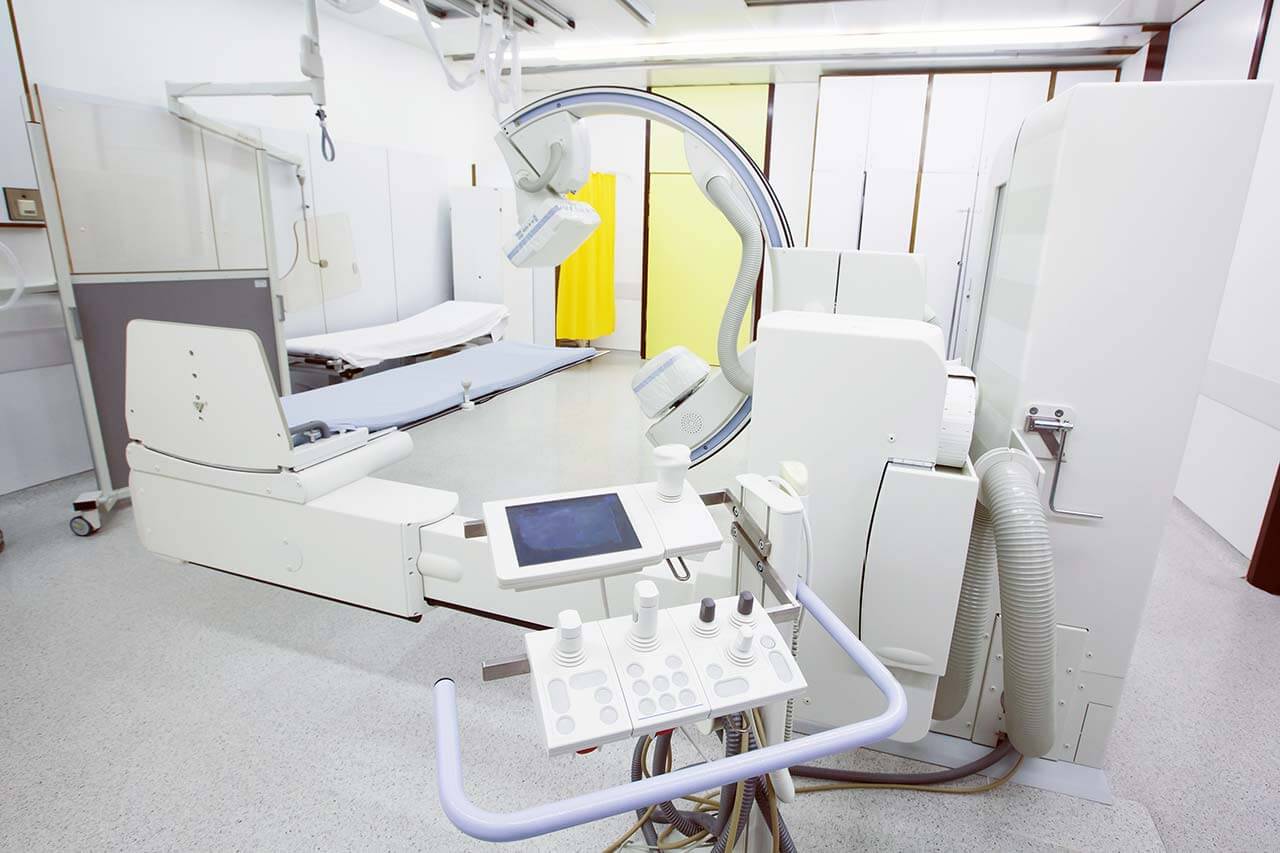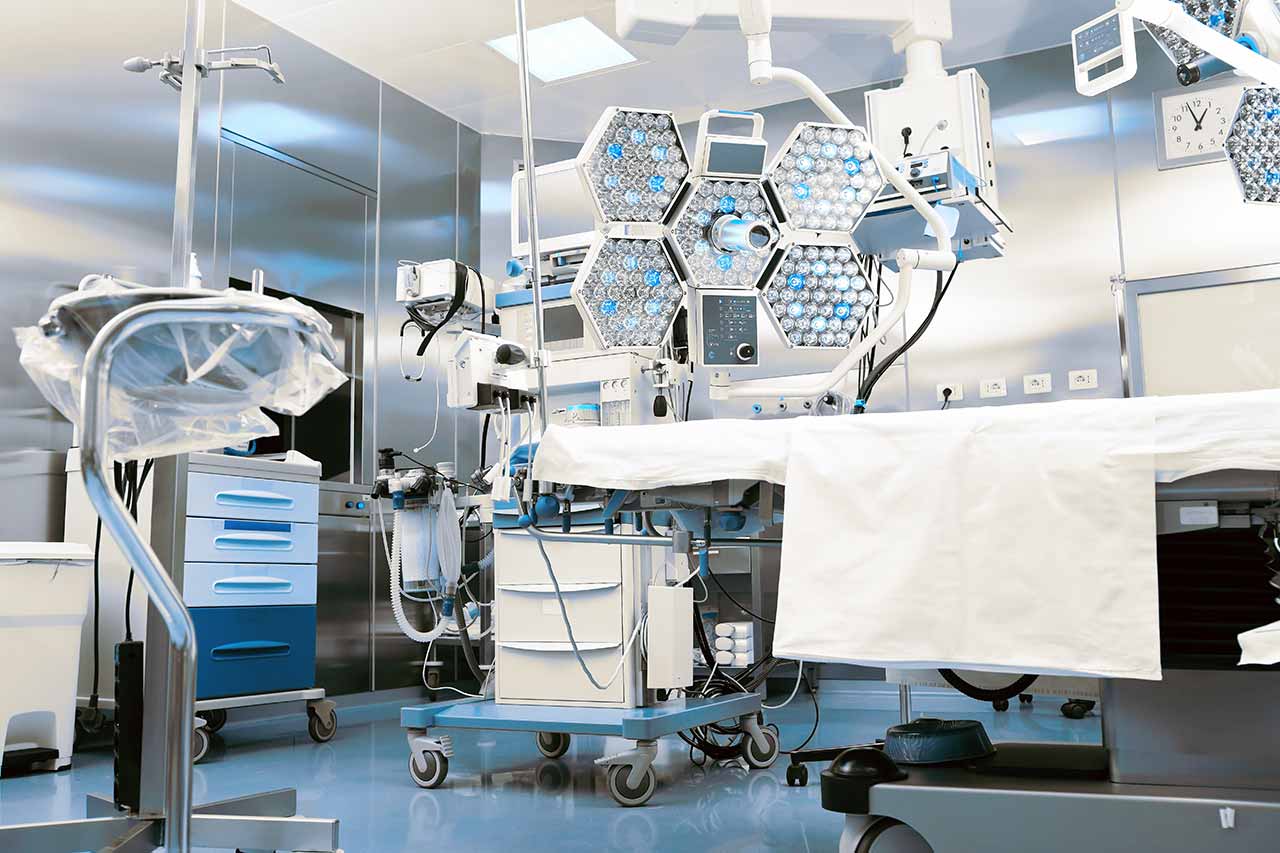
The program includes:
- Initial presentation in the clinic
- clinical history taking
- physical examination
- cardiological examination
- laboratory tests:
- complete blood count
- general urine analysis
- biochemical analysis of blood
- TSH-basal, fT3, fT4
- indicators of inflammation
- indicators blood coagulation
- transesophageal echocardiography (TEE)
- EKG/ ECHO/ x-ray of th chesе
- holter monitoring (24h)
- heart catheterization
- preoperative care
- surgical treatment of heart defects
- symptomatic treatment
- control examinations
- cost of essential medicines and materials
- nursing services
- full hospital accommodation
- explanation of future recommendations
Required documents
- Medical records
- Echocardiography (if available)
Service
You may also book:
 BookingHealth Price from:
BookingHealth Price from:
About the department
The Department of Cardiac Surgery at the University Hospital Freiburg offers the full range of services in this field and specializes in the surgical treatment of patients with all diseases of the cardiovascular system. The department is headed by Prof. Dr. med. Dr. h.c. Friedhelm Beiersdorf, a top expert with a worldwide reputation, who has saved thousands of lives.
The experienced surgeons of the department perform about 4,500 surgical interventions annually. For each patient, an individual, most sparing treatment is selected, for example, heart valve surgery is performed minimally invasively, whereas implant placement in aortic aneurysms is performed using endovascular techniques. In addition, the department is proud of the successful indicators in the field of bypass surgery, which is performed using the very latest methods, including endovascular techniques.
The service range of the department includes:
- Coronary artery bypass grafting (arteries of the thoracic wall, superficial veins of the lower limb, radial arteries can be used)
- Off-pump coronary artery bypass
- Minimally invasive direct coronary artery bypass
- Heart valve surgery (minimally invasive techniques are mostly used)
- Surgery in acquired heart valve disease
- Surgery in mitral valve disease
- Surgery in tricuspid valve disease
- Aortic or mitral valve replacement with artificial valves or bioprosthetics
- Reconstructive surgery in valvular heart disease
- Other therapeutic options
- Open vascular and endovascular surgery
- Surgical treatment of artery stenosis (cerebral arteries, arteries of pelvic organs and lower limbs)
- Surgical treatment of aneurysms of the aorta, femoral artery, popliteal artery and iliac artery)
- Surgical treatment of other vascular pathologies
- Heart transplantation (only in patients under the age of 65)
- Implantation of heart support systems
- Left ventricular assist device (Heart Mate II, Heart Mate III)
- Biventricular assist device (HeartWare, Thoratec Levitronix, Cardiowest TAH)
- Surgery in cardiac arrhythmias (atrial fibrillation)
- Medication therapy
- Cardiac catheterization treatments
- Surgical ablation
- Surgical treatment of benign and malignant cardiac tumors
- Open-heart surgery
- Minimally invasive interventions
- Heart reconstruction by cardiac muscle replacement with an artificial heart or heart transplantation after tumor removal
- Other surgical treatments of cardiovascular diseases
Curriculum vitae
- 1975 - 1981 Study of Human Medicine at the Goethe University Frankfurt, Johns Hopkins University (Baltimore, USA) and Thomas Jefferson University (Philadelphia, USA).
- 10/1981 Admission to medical practice.
- Carl Duisberg Scholarship.
- Dissertation: "Determination of maximal ischemic tolerance of the human heart with the use of ultrastructural and biochemical methods for the detection of preischemic myocardial hypertrophy and degeneration", defense with honors (summa cum laude).
- 1982 Award of the Association of Friends of Paul Ehrlich (Preis der Gesellschaft der Freunde Paul-Ehrlichs) for the best dissertation of the Medical Faculty of the University of Frankfurt.
- November 10, 1981 Awarding of the degree of Doctor of Medicine.
- American State Medical Examination: July 23, 1980 National Board, 1st part (ECFMG).
- September 9, 1982 National Board, 2nd part (VQE).
Advanced Training
- December 1981 - February 1983 "Pathology", Center for Pathology at the Goethe University Frankfurt (Prof. Dr. K. Hübner).
- December 1981 - February 1983 "General Surgery", Department of General Surgery, Thoracic, Cardiovascular Surgery, Traumatology, Urology and Neurosurgery, Surgery Center at the Goethe University Frankfurt.
- 1984 - 1985 "Thoracic and Cardiovascular Surgery" and "Vascular Surgery", Department of Thoracic and Cardiovascular Surgery at the Goethe University Frankfurt, Department of Cardiothoracic Surgery, University of California (Los Angeles, California, USA).
Medical Specialist Certifications
- August 8, 1990 Medical Specialist in Surgery (Medical Association of the State of Hesse).
- January 29, 1992 Medical Specialist in Thoracic and Cardiovascular Surgery (Medical Association of the State of Hesse).
- September 21, 1994 Medical Specialist in Vascular Surgery (Medical Association of the State of Hesse).
Specialization
- 1994 Vascular Surgery (Medical Association of the State of Baden-Württemberg).
- 1995 Heart Surgery (Medical Association of the State of Baden-Württemberg).
Other Activities and Achievements
- 1995 Optional advanced training, Special Intensive Care in Cardiac Surgery (Medical Association of the Land of Baden-Württemberg).
- 1997 Laboratory research (Medical Association of the State of Baden-Württemberg).
- June 1990 Habilitation in Surgery. Subject: "The principle of controlled reperfusion in cardiovascular interventions", Faculty of Medicine, Goethe University Frankfurt.
- September 1992 PD.
- May 1992 University Lecturer (C2), Thoracic and Cardiovascular Surgery, Goethe University Frankfurt.
- October 17, 1994 Acting Head of the Department of Cardiovascular Surgery at the University Hospital Freiburg.
- January 1995 University Professor (C4), Cardiovascular Surgery, Albert Ludwig University of Freiburg, Ministry of Science and Research of the State of Baden-Württemberg, Stuttgart.
- 10/1997 - 10/2001 Managing Director of the Department of Surgery, Ministry of Science and Research of the State of Baden-Württemberg, Stuttgart.
- 1999 Appointed as a Member of the European Association of Cardiothoracic Surgery.
- November 2000 Professor honoris causa, University of Marilia, Brazil.
- May 16, 2001 First permanent Jarvik-2000 left ventricular assist device implantation in Germany.
- 2002 Board Member of the European Association of Cardiothoracic Surgery.
- 2002 Foundation of the association "Kinderherzen retten e.V."
- 2004 Establishment of the patient-funded research laboratories (at the Department of Cardiovascular Surgery).
- May 5, 2005 First total artificial heart CardioWest (Jarvik 7) implantation in Baden-Württemberg.
- March 2006 Invitation to the position of W3 Professor, Ruprecht Karl University of Heidelberg.
- May 2006 Head of the Department of Cardiovascular Surgery at the University Hospital Freiburg.
- February 2007 Elected as the first Vice President of the German Society of Thoracic and Cardiovascular Surgery.
- March 2008 Awarded an Honorary Doctoral Degree from the National University of Laos in Vientiane.
- June 2008 First simultaneous heart-lung transplantation in Baden-Württemberg.
- February 2009 Elected President of the German Society of Thoracic and Cardiovascular Surgery.
- May 2010 Founding of the "ResuSciTec" project, University Hospital Freiburg.
- September 2010 Elected Editor-In-Chief of European Journal of Cardiothoracic Surgery.
- 2011 Fritz Acker Award of the German Society of Cardiology.
Photo of the doctor: (с) Universitätsklinikum Freiburg
About hospital
The University Hospital Freiburg is famous for its rich history and is one of the oldest and most prestigious medical facilities in Germany (one of the three best medical institutions in the country). The hospital was based on the Faculty of Medicine of the Albert Ludwig University of Freiburg, which celebrated its 550th anniversary in 2007. It should be noted that the hospital is proud of its world-renowned specialists, many of whom during their work here have become Nobel laureates.
The medical facility represents all fields of modern medicine. It consists of 42 departments, 11 institutes and 10 interdisciplinary centers. The highly qualified doctors of the hospital deal with the treatment and rehabilitation of patients with both common and rare diseases. All departments and institutes of the hospital take an active part in fundamental researches of international scale, due to which patients have access to the very latest achievements of medicine, advanced diagnostic methods, state-of-the-art medical equipment and proven effective methods of therapy.
The hospital has a variety of medical achievements, for example, the world's first TIPS procedure, the first implantation of the Jarvik-2000 artificial heart in Europe, the first robotic-assisted surgery on the brain, and the first combined cardiopulmonary transplantation in the land of Baden-Württemberg. In 2004, the University Hospital Freiburg became the first German hospital, which performed kidney transplantation in the incompatibility of blood groups. At the moment, the hospital belongs to medical centers with the greatest experience in performing such an operation.
An interdisciplinary approach to treatment, highly qualified staff, as well as individual patient care and a pleasant environment are key to the hospital’s success.
Photo: (c) depositphotos
Accommodation in hospital
Patients rooms
The patients of the hospital are provided with comfortable rooms with a pleasant design, which create a conducive atmosphere for recovery. The standard furnishing of the patient room includes a telephone, a free radio and TV, a device for calling medical staff, lockers and a safe, an adjustable bed, a chair and a table. The pediatric departments are designed with play areas. The patient may be accommodated in a single or double enhanced-comfort room (for example, with an ensuite bathroom) at an additional cost.
Meals and Menus
The patients are offered good three meals a day with a large selection of dishes. The patients inform about their wishes to the menu in advance, and this information is transmitted to the kitchen. Throughout the day, patients may drink mineral water and tea, which can be found in the department on special tables. The bedridden patients receive drinks from the nursing staff. Other drinks may be purchased at the hospital’s cafeterias and bistro, where patients can come along with visitors.
If you do not eat some products due to intolerance or other personal reasons, please notify the nursing staff in advance, so that all your wishes to be taken into account when preparing the menu.
Further details
Standard rooms include:
Television
All patient rooms have a free radio and TV. The patients can also watch the hospital’s own 24-hour channel with a varied program and interesting information.
Accompanying person
At the availability of free beds, the accompanying person may be accommodated in the same room with the patient, at an additional cost. In addition, the hospital offers special accommodation conditions for patients requiring long-term hospitalization. Parents have at their disposal special apartments in the children's hospital.





